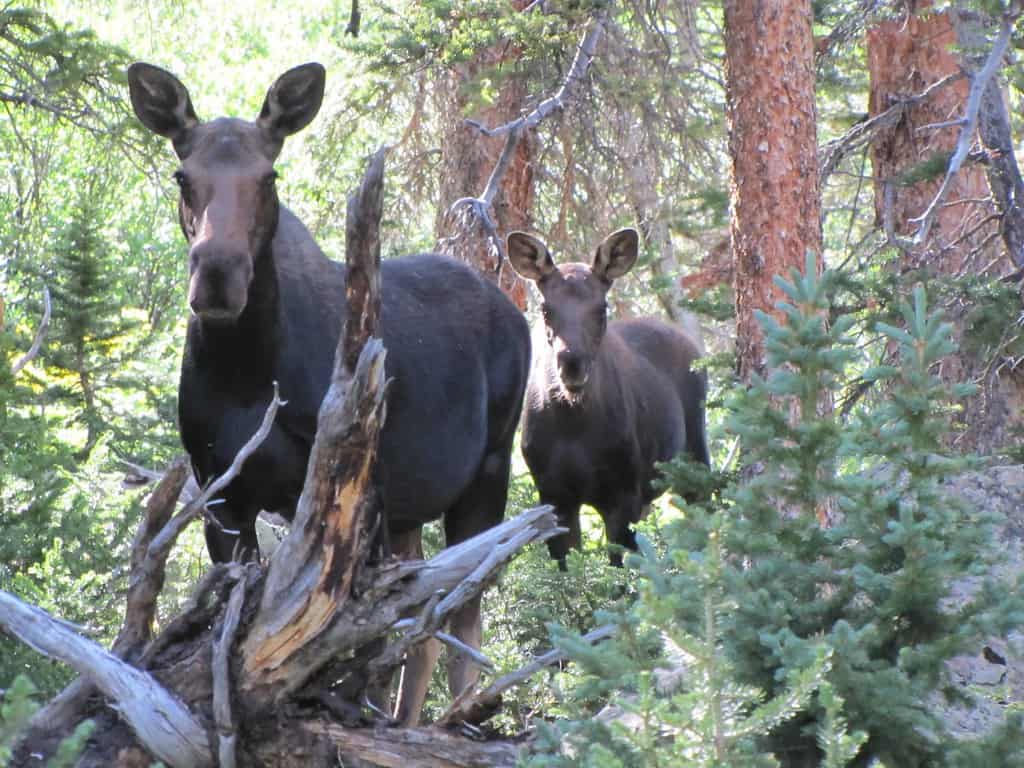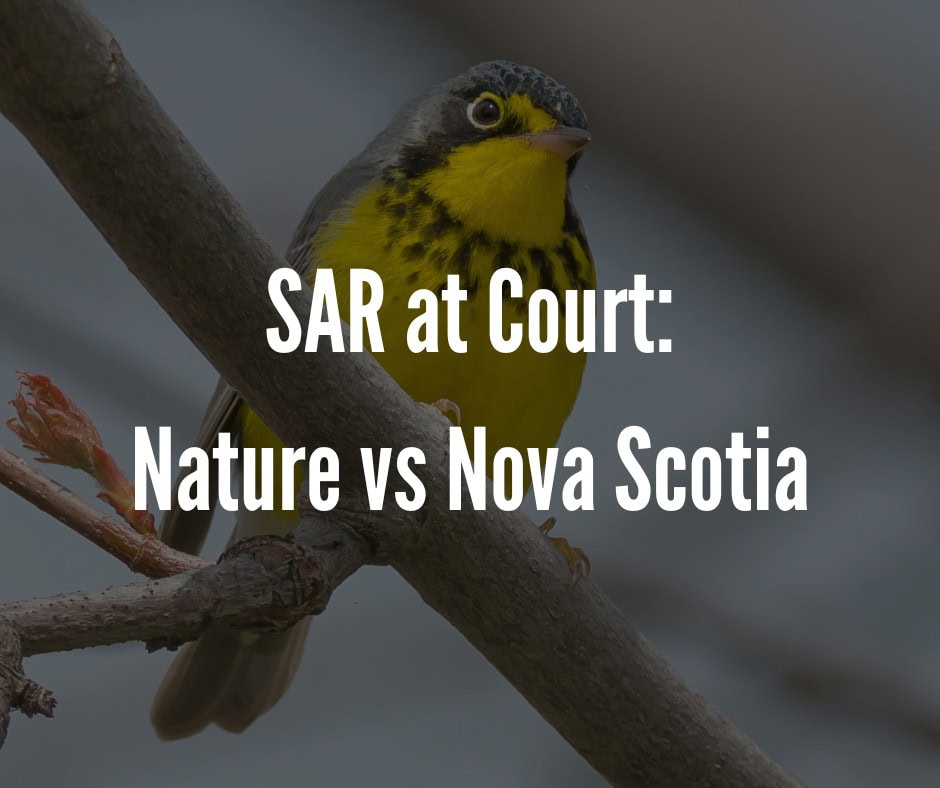For years, the Nova Scotia government has failed in its obligation to assess, plan for, and meaningfully protect species at risk. East Coast Environmental Law produced a report in 2015 titled Protected on Paper Only that showed how government had failed to comply with its own legislation for 20 out of 37 species listed on the provincial registry. Shortly after, an auditor general report made similar criticisms and shared several recommendations for how the province could get back on track, many of which were not acted upon. ECELaw updated their report in 2019.
The same year, hobby naturalists within the Nature Nova Scotia network, including Halifax Field Naturalists and Blomidon Naturalists Society, sought out the services of Juniper Law with ECELaw as an intervenor (represented by EcoJustice) and, together, launched a judicial review of the province’s management of species At risk. In 2020, the Supreme Court sided with nature, finding the Nova Scotia government failed to adequately protect several SAR by not completing recovery reports on time, not identifying core habitat for listed species, or not reviewing existing reports by the legislated deadline. We are now following the Department’s progress as they catch up on these requirements under the NS Endangered Species Act and updating our members and supporters accordingly.
Read our updates on the actions taken for the Species At Risk listed in the judicial review to date:
- Spring 2020: NS Adopts Federal Recovery Plan for the Wood Turtle
- Fall 2020: NS Releases Rams Head Lady Slipper Recovery Plan
- Fall 2021: NS Releases Moose Recovery Plan with Required Population Goal and Core Habitat Identification
- Fall 2021: NS Updates Black Ash Recovery Plan with Required Core Habitat Definition
- Winter 2021: NS Adopts Federal Recovery Plan for the Canada Warbler
- Spring 2022: NS Releases Management Plan for the Eastern Wood-Pewee
That average citizens had to take our own government to court in order to get action on already-existing legislation quickly made news across the country in early 2020 and made Nova Scotia a national embarassment. Though we are happy that our provincial government is finally moving on these outstanding listed species and we are impressed with many of the recommendations in the Mainland Moose Recovery Plan, in particular, we are still skeptical of the government’s commitment to Species At Risk. Many species are still waiting for their required Recovery Plans, identification of Core Habitat, or other planning components required under the Endangered Species Act. We are also concerned that Species At Risk conservation measures may too often end at the conclusion of the planning process, as our government continues to delay implementation of the Lahey Report, has developed a reputation for secret land sales, and continues to allow development in sensitive habitats like wetlands.
You Can Help
Write to your representative and share your concerns for our rarest wildlife. Ask them what they are doing to improve government transparency, ensure deadlines are met, and protect our Species At Risk.
Donate to our Species At Risk Fund and help us fill knowledge gaps for the endangered Mainland Moose.
Nature Depends On It.

Want SAR news delivered to your inbox? Sign up for our email list!
Further reading:
Government of Canada. 2023. Progress report on steps taken for protection of critical habitat for species at risk in Canada.
Mines, S. 2023. Beyond the Implementation Gap: A Narrative Analysis of Nova Scotia’s Endangered Species Act. Thesis submitted in partial fulfillment of the requirements for the degree of Combined Honours in Environment, Sustainability and Society & Law, Justice and Society. Dalhousie University
Turcotte et. al. 2021. Fixing the Canadian Species at Risk Act: identifying major issues and recommendations for increasing accountability and efficiency. FACETS. 6(): 1474-1494. https://doi.org/10.1139/facets-2020-0064
Daviet, F. and Plotin, R. 2021. Closing the gaps in protection for species at risk. Policy Options.
McDonald, S. 2019. Canada’s species laws lack teeth. Ecojustice.
Pynn, L. 2019. How Canada’s law for protecting at risk species is failing. The Narwhal.
Dorey, K. and Walker, T. 2017. Limitations of threatened species lists in Canada: A federal and provincial perspective. Biological Conservation, Volume 217, Pages 259-268, ISSN 0006-3207, https://doi.org/10.1016/j.biocon.2017.11.018.
Daviet, F. 2017. Why CPAWS is suing the Federal Government under the Species at Risk Act? Canadian Parks and Wilderness Society
